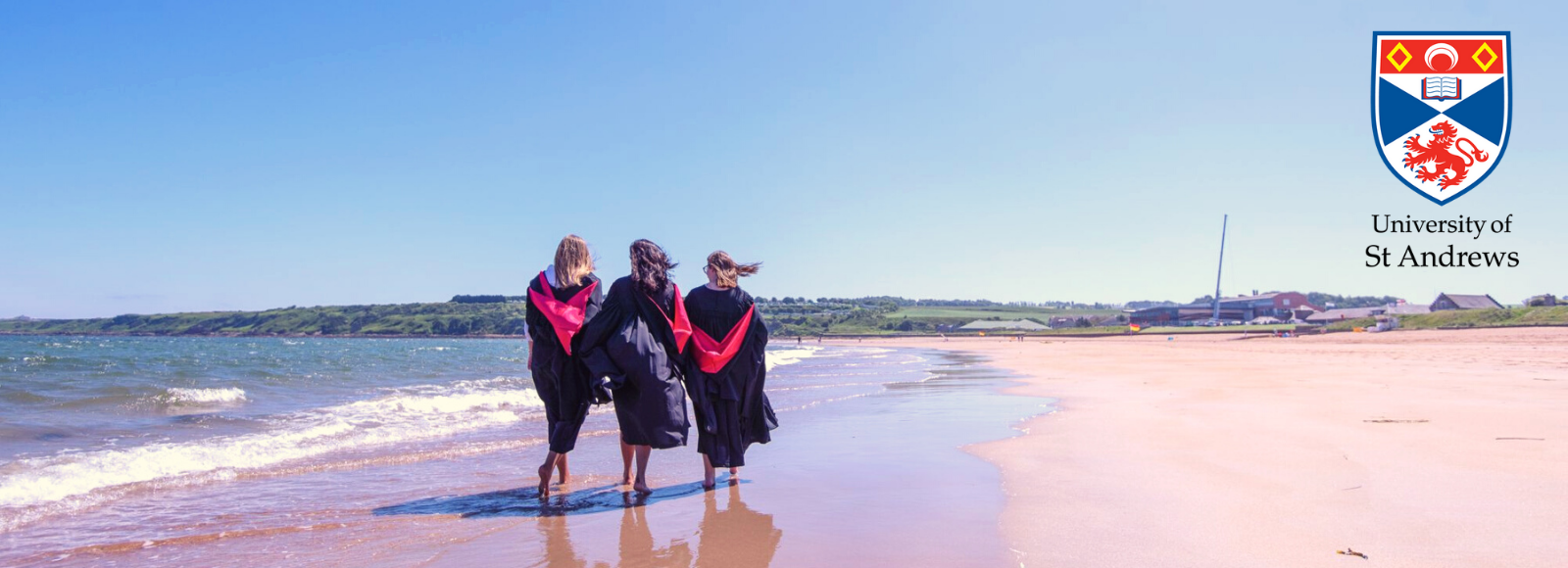- ...
Postgraduate Studentships - Search for funding opportunities.
Postgraduate Studentships - Search for funding opportunities.
The MLitt in Classics is a full-time taught postgraduate programme run by the School of Classics. If you are interested in part-time study, you should contact the School's Director of Postgraduate Teaching by emailing classicsdopgt@st-andrews.ac.uk in the first instance to request approval.
The course embraces the study of all aspects of the ancient Greek and Roman world including Greek and Latin literary culture, ancient history, archaeology, classical philosophy, and the reception of antiquity in later periods.
Highlights
The minimum requirements for entry to the MLitt in Classics are a first-class or 2.1 degree or equivalent. If you studied your first degree outside the UK, see the international entry requirements.
In reviewing applications for the MLitt, the School of Classics looks especially at:
The MLitt Convenor is happy to be contacted and, if necessary, to set up a meeting in person or virtually so that you can discuss your plans and to ensure that St Andrews is the best place for you to pursue a Masters degree.
If you have any queries concerning the programme or your suitability for it, you are encouraged to make contact in advance of your application.
The qualifications listed are indicative minimum requirements for entry. Some academic Schools will ask applicants to achieve significantly higher marks than the minimum. Obtaining the listed entry requirements will not guarantee you a place, as the University considers all aspects of every application including, where applicable, the writing sample, personal statement, and supporting documents.
Application requirements
For more guidance, see supporting documents and references for postgraduate taught programmes.
For fees and funding options, please visit website to find out more
Postgraduates from the School of Classics go on to pursue careers in a diverse range of professional careers. For example, recent graduates have gone on to work in:
Others have gone on to successful academic careers in the UK, North America and internationally.
Advice on academic and other career paths is integrated into the MLitt.
The Careers Centre offers one-to-one advice to all students as well as a programme of events to assist students in building their employability skills.
Compulsory
Optional
Classics students have the opportunity to choose two of the following five overarching modules, one per semester. These modules are designed to give you both a familiarity with the key debates in a given subject area and the opportunity to develop a topic of your own choice with one-to-one supervision. The choice of modules allows you flexibility to develop a range of pathways and to focus, for example, on history, literary culture, philosophy or archaeology, or to focus on Greek or Roman history and literature in combination.
Semester 1 (choose one)
Semester 2 (choose one)
Optional modules are subject to change each year and require a minimum number of participants to be offered. Some may only allow limited numbers of students. Read more about curriculum development at the University of St Andrews.
Language Modules
All students have the opportunity to study Greek or Latin from beginners’ level, or to improve their language skills through more advanced language courses.
Students who take Greek or Latin language modules take alternative versions of the optional modules which follow the same course of study but with a reduced workload and fewer credits.
Dissertation
Each student undertakes a dissertation of 15,000 words on a specialist subject chosen in consultation with the MLitt convenor and a dedicated supervisor who is responsible for guiding you through the research process and commenting on draft sections. The completed dissertation must be submitted by mid-August.
If students choose not to complete the dissertation requirement for the MLitt, there is an exit award available that allows suitably qualified candidates to receive a Postgraduate Diploma. By choosing an exit award, you will finish your degree at the end of the second semester of study and receive a PGDip instead of a MLitt.

Scotland’s first university, an experience like no other Masters programmes to help you find your future. Are you looking to earn an outstanding pos...
Sign up to Postgraduate Studentships
Sign up to compare masters
Thanks for making your selection. Click below to view your comparisons.